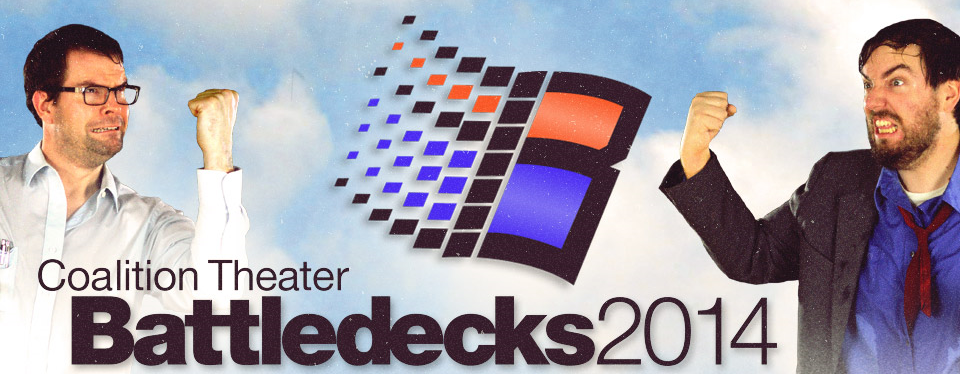Last weekend, my best friend and I went downtown to watch the Coalition Theater’s 2014 Battledecks competition. Ten Richmonders competed to improvise the best (read: funniest) Corporate-style PowerPoint presentation based on a deck of ridiculous slides they had never seen before. As you can imagine, the results were beyond hilarious. It seemed everyone in the audience found humor in the presentations, because we all recognize that over-used, stereotypical language of business jargon.
I like to think that Floricane is a little more raw and down-to-earth than your typical O.D. consultancy, but even we can fall into the habit of corporate-speak. When I first started here in 2012, I felt like I had to learn a whole new language. Around the office, in emails, and at client meetings, I was surrounded by words and phrases I had no context for: “core competencies,” “best practices,” “hijacked,” and “out of pocket.” [Confession: For a little while, I thought John had made up “out of pocket” to mean that he wasn’t going to have his phone in his pocket for the rest of the afternoon. That makes sense, right?].
After a few months, without really realizing it, I started to speak this language fluently, surprising myself by saying things like “Can I leverage your talents for a minute?” and “Let’s take this offline.” My excuse? It’s easy to adopt the insider-language when you’re one of the insiders, and it can be useful to have common company-wide vocabulary-- but there are downsides, too, like alienating the "outsiders," and causing confusion with fluffy, unclear language.
A lot of jokes are made about corporate jargon. It’s obvious from the comedy of Battledecks, Dilbert, and Office Space that these words can come across as vague, ridiculous and eye-roll-worthy, so why don’t more companies make an effort to side-step it altogether? It's simple: Changing your company's language means changing your company's culture, and culture change isn’t easy.
I’m no consultant, but I can tell you this much: Easing up on the corporate-speak and humanizing the way we communicate will bring more clarity to the workplace, and clarity is a good and empowering thing for everyone.



